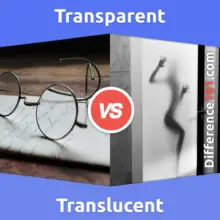Politics is a complex field that can be hard to make sense of at times, especially when it comes to the various forms of government. Two of the most common political structures are federation and confederation. Though these terms may sound similar, they actually have vastly different meanings and implications in terms of their organization and operation. Understanding the difference between them is important for anyone who is interested in politics, whether as a hobby or a profession.
Table of Contents
What Is Federation?

Federation is a political entity that comprises a group of self-governing states or regions, which are united through a central government. It is a form of political organization that allows individual regions or states to retain their power while sharing common national interests. The central government is responsible for defense, foreign affairs, and other national issues, while the individual states manage their internal affairs, such as education, healthcare, and resource management. Federations offer several advantages, such as the ability to balance regional needs with national priorities, promote cultural diversity, and improve economic stability. Examples of federations include the United States, Australia, and Canada.
What Is Confederation?

Confederation refers to a political entity where several states or groups come together to achieve a common goal or purpose, such as defense or trade. This consolidation is rooted in the belief that unity can bring greater strength and success than individual efforts. Typically, a confederation is formed for mutual benefit, and each member entity maintains a degree of sovereignty while cooperating closely with others. The United States, for example, was originally formed as a confederation of thirteen colonies to ensure mutual support and protection against British rule, and later, to create an economic union to benefit all member states. Hence, a confederation emphasizes equal participation and collaboration among its members for achieving common goals.
Key Differences Between Federation And Confederation
Federation and Confederation are two distinct political entities that differ in their composition, structure, and objectives. The key difference between them lies in their centralization of power. Federations are characterized by a strong central government that retains significant authority over the member-states or regions. In contrast, Confederations feature a weaker central government that operates primarily as an intergovernmental body to facilitate cooperation between the member states. Federations typically have a constitutional division of power between the national government and regional governments. Confederations often have a more ad-hoc, negotiated relationship between member states, with decisions requiring unanimous support. Despite their differences, both Federation and Confederation are useful political models that offer a flexible means of organizing diverse groups of states or regions.
- Federations are characterized by a strong central government that retains significant authority over the member-states or regions.
- Confederations feature a weaker central government that operates primarily as an intergovernmental body to facilitate cooperation between the member states.
- Federations typically have a constitutional division of power between the national government and regional governments.
- Confederations often have a more ad-hoc, negotiated relationship between member states, with decisions requiring unanimous support.
Federation vs. Confederation Similarities
Federation and Confederation are two forms of political entities that share several similarities. Both entities aim to unite various states or regions for a common purpose, although the method used to achieve this is different. In a federation, the states or regions retain their self-governance and have a central government that oversees their collective affairs. Similarly, in confederation, constituent states or groups join together to form a central authority, but each state operates as separate entities. Both forms of political entities may have a shared purpose that includes freedom of trade, mutual defense, and economic stability. They both enable state sovereignty while providing the benefits of a centralized government for certain purposes. Overall, both federation and confederation are designed to promote unity among different state or regional entities with a common goal.
- Both entities aim to unite various states or regions for a common purpose, although the method used to achieve this is different.
- Both forms of political entities may have a shared purpose that includes freedom of trade, mutual defense, and economic stability.
- They both enable state sovereignty while providing the benefits of a centralized government for certain purposes.
Federation vs. Confederation Pros and Cons
Federation Pros & Cons

Federation Pros
The Federation is a political entity that comprises several self-governing states or regions that are united by a central government. This system presents numerous advantages and pros for the involved parties. Firstly, the Federation promotes unity and cohesion amongst the states or regions by creating a common interest, a shared identity, and a sense of belonging. Secondly, it provides a standardization of laws, policies, and regulations which eliminates any form of discrimination or biasness. Thirdly, it enables the pooling of resources and the sharing of responsibilities, which may result in economic growth, stability, and development. Fourthly, it creates a platform for collective representation on the international stage, which amplifies the voices and views of the individual states or regions. Finally, the Federation guarantees the protection of individual rights, freedoms, and interests, which fosters a more inclusive, fair, and equitable society.
- The Federation promotes unity and cohesion amongst the states or regions by creating a common interest, a shared identity, and a sense of belonging.
- It provides a standardization of laws, policies, and regulations which eliminates any form of discrimination or biasness.
- Federal government is more capable of dealing with international issues.
- Federal government is better equipped to handle national emergencies.
Federation Cons
The Federation, a model of political organization wherein a central authority governs a number of self-governing states or regions, has several disadvantages that need to be addressed. One of the disadvantages is that a central government can become too powerful, reducing the autonomy of the self-governing states or regions, thereby undermining the federal principles. Additionally, divisions between the central authority and the self-governing regions could lead to delays in decision-making, inefficiencies, and conflicts, which could impact the overall functioning of the government. Furthermore, fiscal disparities between states or regions could impede on the general welfare and development of the Federation as a whole. Lastly, regional or state-level policies that go against federal policies could lead to federal-state conflicts, compromising the effectiveness of the Federation.
- One of the disadvantages is that a central government can become too powerful, reducing the autonomy of the self-governing states or regions, thereby undermining the federal principles.
- Divisions between the central authority and the self-governing regions could lead to delays in decision-making, inefficiencies, and conflicts, which could impact the overall functioning of the government.
- Fiscal disparities between states or regions could impede on the general welfare and development of the Federation as a whole.
Confederation Pros & Cons

Confederation Pros
The Confederation is a political entity that offers several advantages and pros that can benefit its members. Firstly, this entity promotes cooperation and collaboration among its participants for a common purpose, usually related to defense or trade. Secondly, it allows member states or groups to combine their resources and expertise to achieve shared goals, which would be difficult to accomplish individually. Thirdly, it provides opportunities for cross-border trade that contributes to economic growth for all the participants. Fourthly, the Confederation can offer a sense of stability and security to its members by providing a unified approach to common challenges. Finally, it can also promote cultural exchange and increased exposure to different ways of life, leading to greater understanding and tolerance among member states or groups.
- This entity promotes cooperation and collaboration among its participants for a common purpose, usually related to defense or trade.
- It allows member states or groups to combine their resources and expertise to achieve shared goals, which would be difficult to accomplish individually.
- It provides opportunities for cross-border trade that contributes to economic growth for all the participants.
Confederation Cons
The Confederation is a form of political entity in which multiple states or groups unite for a common purpose. While it can provide benefits such as defense and trade, it also has its disadvantages and cons. One major drawback is the lack of a central governmental authority. Each state retains its sovereignty, and the Confederation must rely on the voluntary participation of each state to remain effective. This can lead to inefficiencies in decision-making, hindering the Confederation’s ability to respond to crises quickly. Additionally, the Confederation may lack the resources and finances to fund its activities, as each state contributes based on its own budget and priorities. Finally, power struggles and conflicting interests between member states can cause political instability and division.
- Each state retains its sovereignty, and the Confederation must rely on the voluntary participation of each state to remain effective.
- The Confederation may lack the resources and finances to fund its activities, as each state contributes based on its own budget and priorities.
- Power struggles and conflicting interests between member states can cause political instability and division.
Comparison Table: 4 Key Differences Between Federation And Confederation
| Components | Federation | Confederation |
|---|---|---|
| Structure | A federation has a centralized government with strong powers and a division of powers between the central government and the states or provinces. | A confederation is a loose association of states or provinces with a weak central government. |
| Distribution of powers | In a federation, the central government has powers that are specifically enumerated in the constitution, while the states or provinces have powers that are not delegated to the central government. | In a confederation, the states or provinces retain most of the powers, while the central government has limited powers. |
| Sovereignty | In a federation, the central government is considered to be sovereign in its sphere of authority, while the states or provinces are sovereign in their own spheres of authority. | In a confederation, the states or provinces are considered to be sovereign, and the central government has limited authority. |
| Representation | In a federation, the central government is directly elected by the people, while the states or provinces have their own elected representatives who may participate in the central government. | In a confederation, the states or provinces are represented directly in the central government, and there is no direct representation of the people. |
Comparison Chart

Comparison Video
Conclusion: What Is The Difference Between Federation And Confederation?
In summary, the difference between a federation and a confederation is primarily in the level of power given to the central government. While both are political entities consisting of multiple states or regions, a federation has a stronger central government that has the power to regulate and legislate on behalf of all member states, while a confederation has a weaker central government that primarily serves to coordinate between member states. Ultimately, the choice between a federation or a confederation depends on the specific needs and goals of the member states and the level of power and autonomy they wish to retain.







